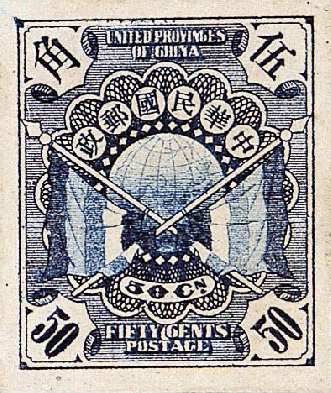Why did Federalism Fail in China? Conceptual Analysis, Comparative Perspectives and Contemporary Legacies

28.05.2021 - 28.05.2021
16:00-18:00 (Paris Time)
Venue:
Zoom Webinar
EURICS
ABSTRACT
In the late imperial and early republican period a growing number of Chinese activists and intellectuals embraced the ideal of local self-government (difang zizhi 地方自治) both as a response to the paralysis of the Qing Court facing internal and external threats to the survival of China as a country, and as the keystone for a federal (lianbang 联邦) structure in the creation of a “new China”. Between the end of the 19th century and the beginning of the 20th, federalism thus embodied a successful trend in Chinese political thought (and action), as demonstrated by a number of journals, essays and pamphlets published in those decades. These thinkers and activists were advocating a political order in which legitimacy would flow from the bottom to the top: federalism thus became conceptually entangled to articulations of “democracy”, “autonomy” and “republicanism”.
That federal spirit, however, missed the opportunity to coalesce into a viable political platform in the mid-1920s. The extreme fragmentation and violence of the warlord era left a mark of chaos on any “federalist” experiment, and the growing influence of Leninism on both the nationalists and the communists strengthened the connection between “order” and “centralism”.
In this talk, EURICS fellow Federico Brusadelli, will look at the development of Chinese federalism using the methodology of conceptual history (Begriffsgeschichte) in order to trace and understand its multi-layered translations (both as a linguistic translation from abroad and as a theoretical translation from the traditional political lexicon of imperial China into the urgences of the 20th century) and the conceptual causes/reflections of its political defeat. Why did federalism fail as a political program in Republican China? What role did the historical precedents of Chinese political thought play in the reception and articulation of federalism? And finally, what legacy does the “federal failure” still play today, after one century, in the (contested) definition of the relationship between centre and peripheries in the People’s Republic of China?
PROGRAMME
Chair:
David Serfass (Assistant Professor of Chinese and East Asian modern history at the INALCO, Paris, France).
Speaker:
Federico Brusadelli (Lecturer in Chinese history at the University of Naples “L’Orientale” , Italy/ EURICS Fellow, Paris, France).
Discussants:
Hagen Schulz-Forberg (Associate Professor of Global and European history at Aarhus University, Denmark);
Henrike Rudolph (Assistant Professor at the Department of East Asian Studies at the University of Göttingen, Germany).
Q&A Session
BIOGRAPHIES OF SPEAKERS
Federico Brusadelli is lecturer in Chinese history at the University of Naples “L’Orientale”, Italy and EURICS Fellow, Paris, France. He has been a researcher in Sinology at the Friedrich-Alexander University in Erlangen-Nuremberg since 2017. He holds a Ph.D. in South & East Asian studies from the University of Naples “L’Orientale”, and before moving to Germany he worked as an Adjunct Professor at the Universities of Bologna (East Asian Philosophies) and Chieti-Pescara (Chinese History). He is the author of “Confucian Concord: Reform, Utopia and Global Teleology in Kang Youwei’s Datong Shu”, published by Brill.
Henrike Rudolph is an assistant professor at the Department of East Asian Studies at the University of Göttingen. Trained in Sinology and Political Science, she completed her Ph.D. at Hamburg University and Fudan University. She later worked as a postdoctoral fellow at Friedrich-Alexander University in Erlangen-Nuremberg and held an interim professorship at the University of Heidelberg. Her research interests lie in the transcultural exchange of knowledge and skills, education thought, as well as network approaches to social and political history, with a focus on twentieth-century China.
Hagen Schulz-Forberg is associate professor of Global and European History at Aarhus University, Denmark. His research interests focus on transnational conceptual history and European history. Recent publications include work in the fields of global history, intellectual history, European history, European integration, travel and tourism, historiography, and cultural history. In 2014 he edited the volume A Global Conceptual History of Asia, 1860-1940.
David Serfass is assistant professor of Chinese and East Asian modern history at the Inalco (National Institute for Oriental Languages and Civilizations, Paris) and research fellow at the IFRAE (French Research Institute on East Asia). His research pertains to the formation of the Chinese nation-state, especially during the Sino-Japanese War (1937-45). He has published articles in journals such as Vingtième Siècle, Études chinoises and Revue d’histoire. He is currently working on an online biographical dictionary of occupied China and a book manuscript on state-making under the Wang Jingwei regime.